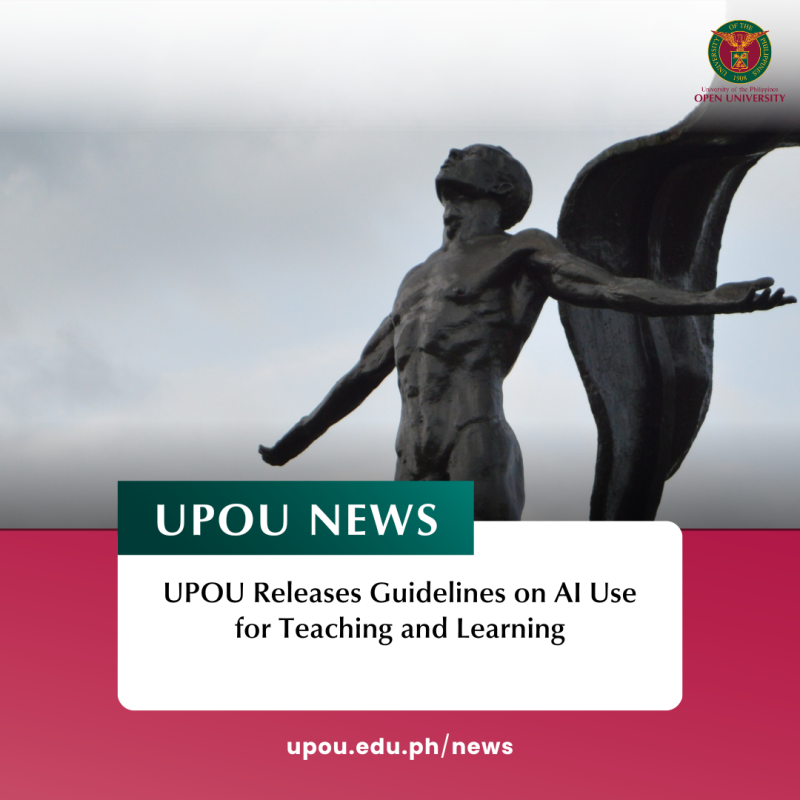
On 10 Jan 2024, through Memo CMDPB 2024-001, the University of the Philippines Open University released its official Guidelines for the Use of Artificial Intelligence (AI) for Teaching and Learning. The guidelines are a concerted effort of the Office of the Vice Chancellor for Academic Affairs through the Center for Open and Digital Teaching and Learning and the ICT Development Office. This has also gone through the approval of UPOU’s Academic Affairs Committee and Chancellor’s Advisory Council. These guidelines also adhere to the University of the Philippines Principles for Responsible and Trustworthy Artificial Intelligence.
The UPOU Guidelines on the use of AI in Teaching and Learning were crafted to acknowledge that the convergence of AI and education will transform teaching and learning in the digital age. It states UPOU’s recognition of the role of AI in content creation, adaptive learning, language support, assessment, and feedback. UPOU believes AI will play a big part in developing lifelong learning skills among learners.
For teachers, the guidelines specify how AI should be used for Course Design and Course Delivery. Teachers may use AI to support the attainment of program or course outcomes, such as to enhance students’ understanding and facilitate more effective learning activities. AI can also be used as a complement to addressing learning preferences and outcomes, and AI must only be used to promote the development of lifelong learning skills, such as enabling engagement and facilitating critical thinking among students. Teachers should also declare to their students the extent of AI use allowed or disallowed in learning activities, facilitating learning, and grading or assessing students’ submissions.
Students, on the other hand, must declare and properly cite AI-generated content, avoid plagiarism when using AI, and disclose to respondents the use of AI in cases of data collection for their coursework.
Both teachers and students are warned not to use AI for harm or illegal purposes.
UPOU will provide the necessary mechanism to ensure that teachers, students, and academic support staff have the skills to use AI for teaching and learning properly and ethically. There will be training sessions, open educational resources, and technologies that will be made available. UPOU shall also continuously monitor the development and trends in AI technology to ensure that UPOU’s academic community will evolve.
These guidelines will take effect by the start of UPOU’s Second Term (2nd Trimester/2nd Semester) AY 2023-2024 and can be accessed on the UPOU website.
Written by Anna Cañas-Llamas ♦ Edited by Myra C. Almodiel








